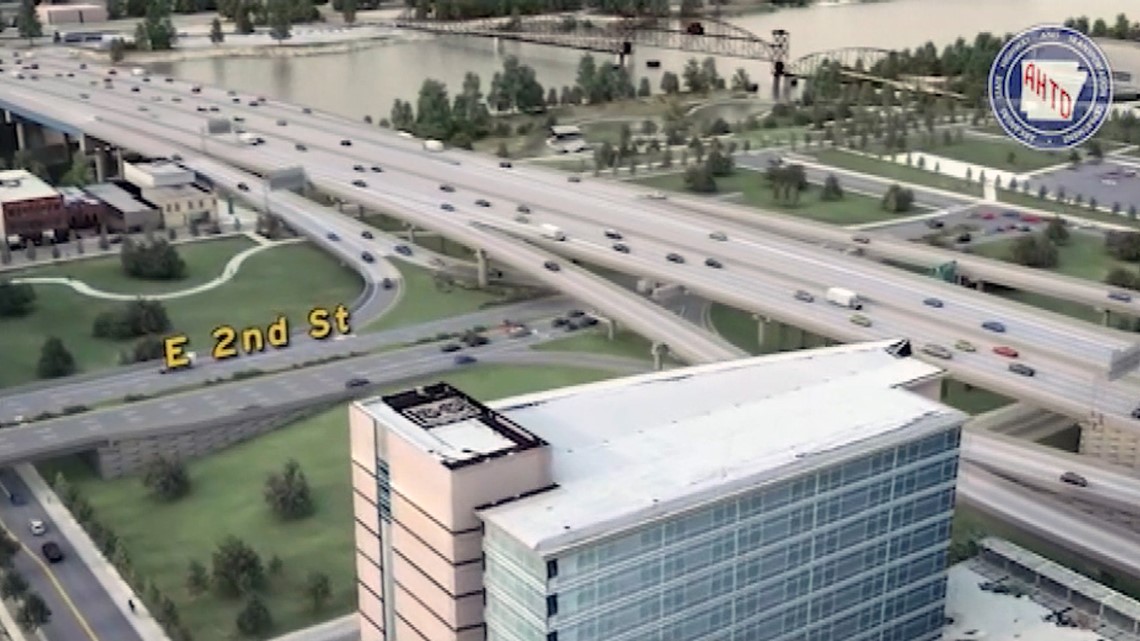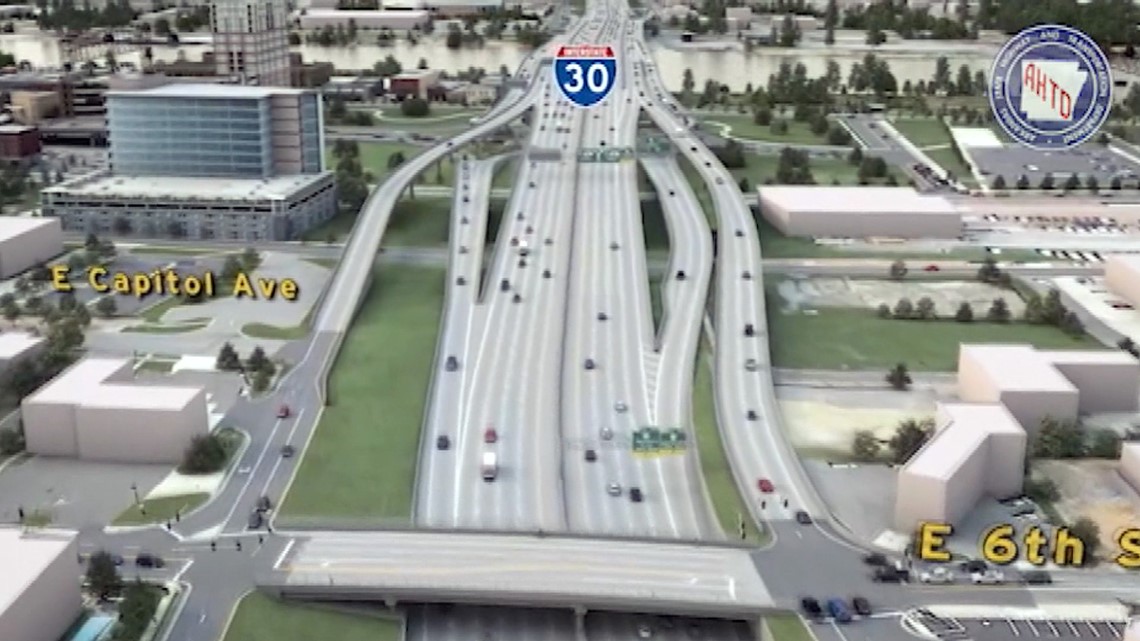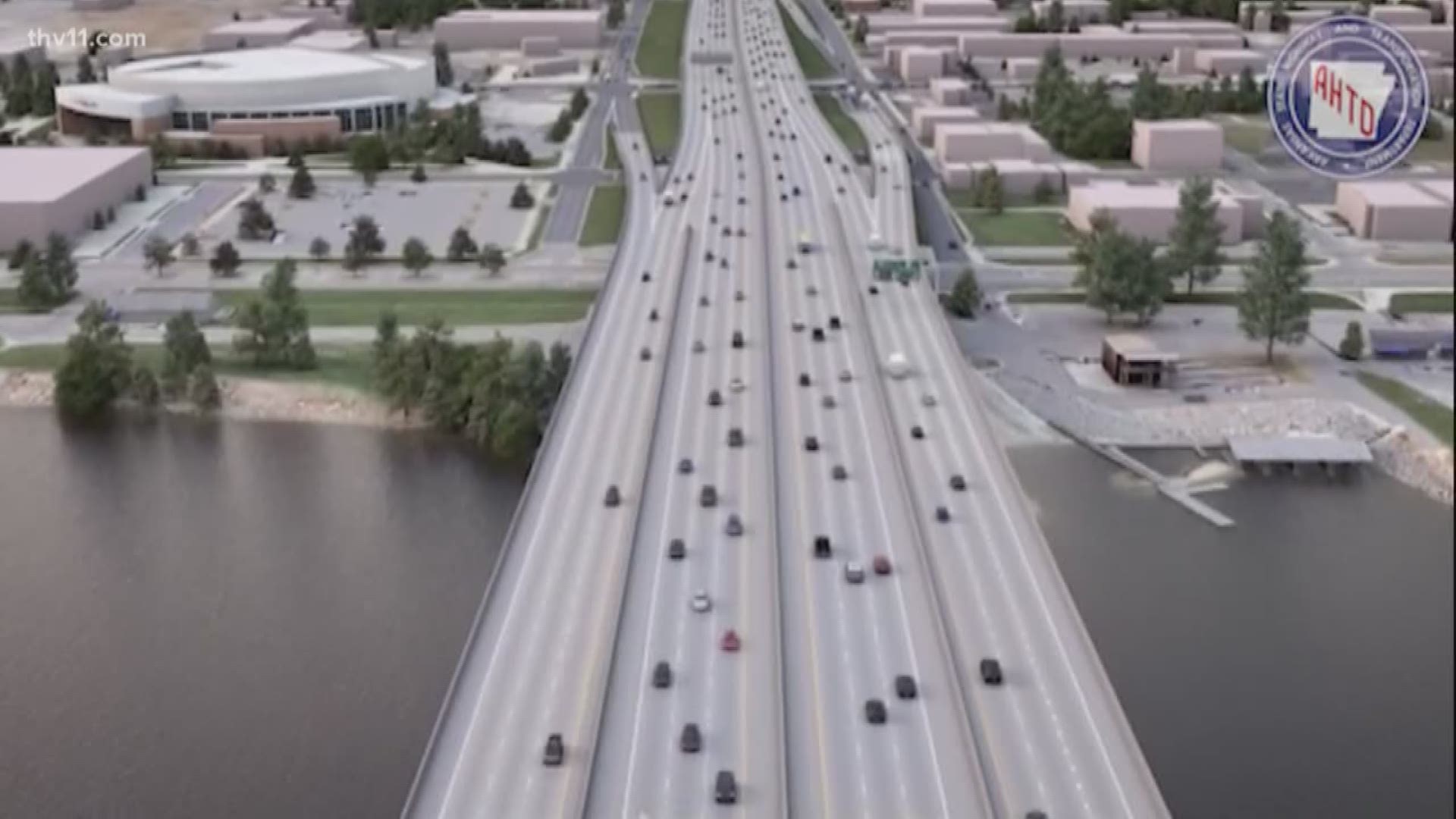LITTLE ROCK, Ark. — A stayed lawsuit is allowing Arkansas highway officials to press ahead with what will eventually be a $1 billion plan to revamp and rebuild I-30 through the heart of downtown Little Rock and North Little Rock.
The centerpiece of phase one of the plan is a new bridge over the Arkansas River.
"We have to replace the bridge structure," said Randy Ort, a spokesperson for ARDOT. "It was built in the 1950s and we need to replace it."
The plans to tear down the busy six-lane crossing have been on the drawing board for a year, but details of what the state can afford to do in the first round of construction are emerging.
"It was kind of like buying a house," Ort said. "We knew what we wanted, but we have a budget."
With that budget will be a new crossing with six lanes, but add two more collector-distributor lanes in both directions.
Those C-D roads won't be highway speed but instead function more like city streets or frontage roads. Local traffic between the two downtowns won't have to clog the interstate.


A little farther south, there will be a relief for travelers going from I-630 on to I-30. The ramp heading north is getting a new lane. It eliminates a merge that often brings on mild road rage as the lane drops.
"It should allow for better flow," Ort said. "And it won't require a bigger footprint. That part of the project is all staying within the right-of-way that's there."
On the North Little Rock side, improvements include "braided lanes." Similar to the massive Big Rock Interchange in west Little Rock, the new title-holder of most expensive highway project in state history, will feature stacked lane configurations.


Instead of the two lanes that exit right off I-30 at the northern terminus on to I-40 eastbound, those lanes will fly over the roadway and enter on the north side of the current highway.
A single lane will scoot under that ramp and head east toward Memphis. Together the two lanes make a braid.
The configuration should eliminate the rushing weave most of the traffic executes to get to the exits on the left that head north up US 67/167.

